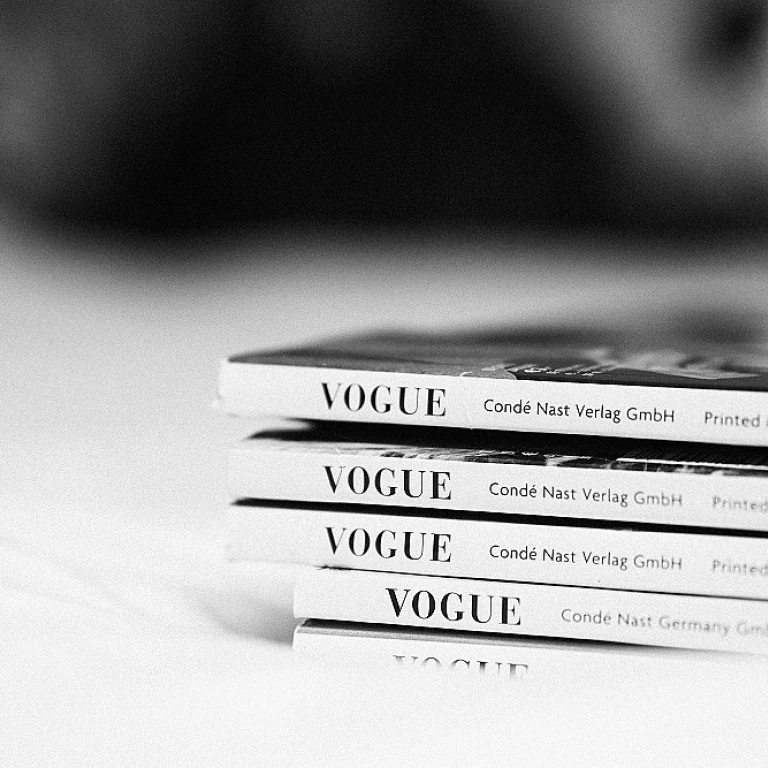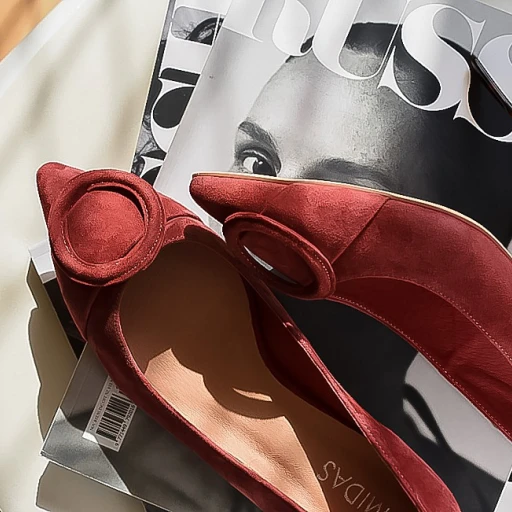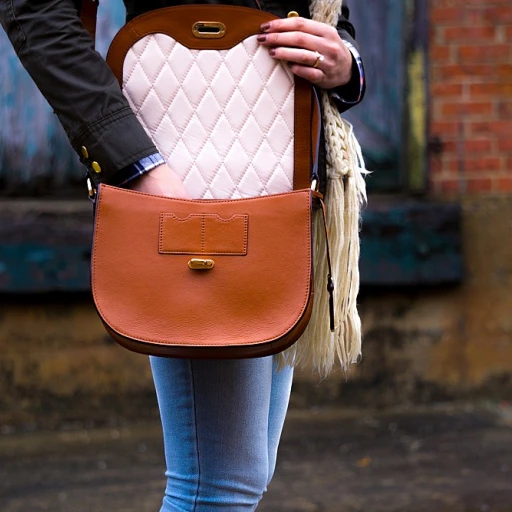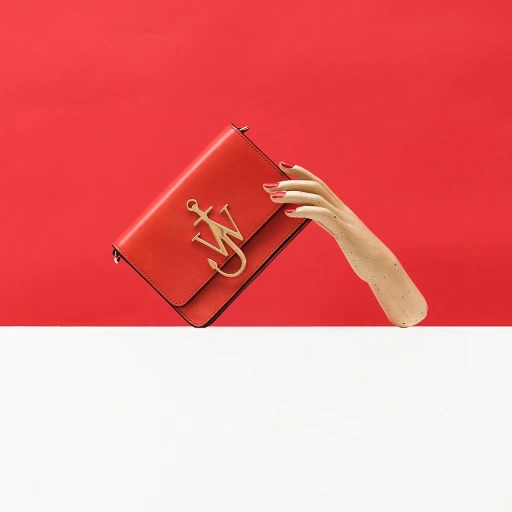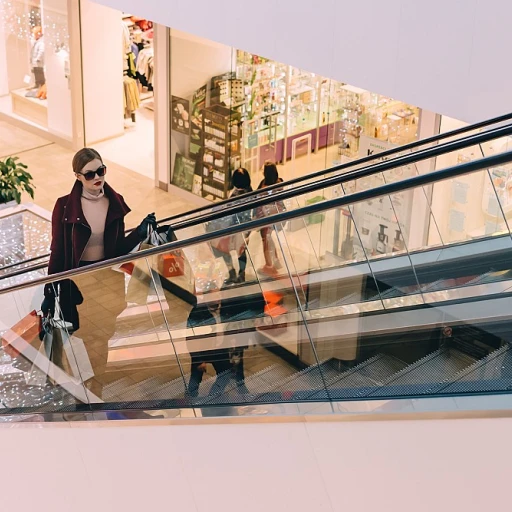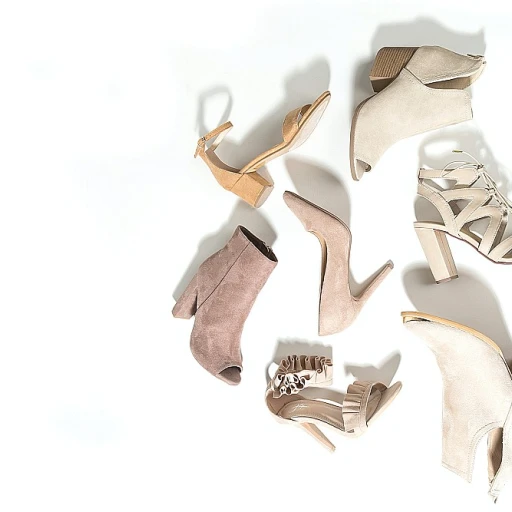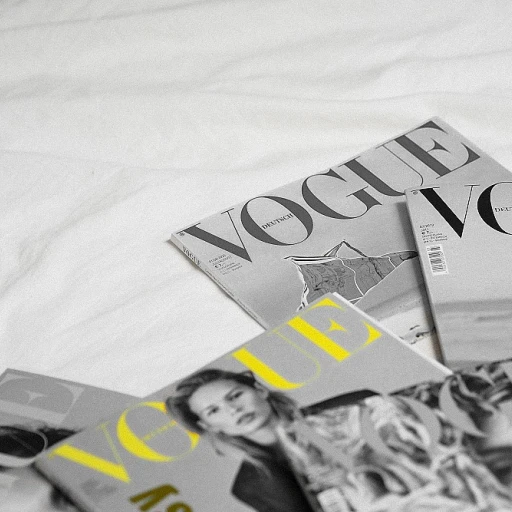The Art of Shoe Craftsmanship: More Than Just a Trend
The Enduring Allure of Handcrafted Footwear
The world of fashion is witnessing a revival, one that tugs at the heartstrings of authenticity and bespoke beauty—the artisanal shoe. This resurgence is marked by a deep appreciation for the artistry and time-honored techniques poured into each handcrafted pair. According to a recent study by Grand View Research, the global luxury footwear market is expected to grow significantly, reaching a market value of over $32 billion by 2025, a testament to the rising demand for high-quality, artisanal products.
Decoding the Charm Behind Handmade Shoes
Artisanal shoes aren't simply a fleeting fad; they embody a celebration of personalized craftsmanship, exceptional quality, and sustainability. As reported by the Sustainable Fashion Forum, over 60% of consumers are willing to pay more for sustainably made products, including footwear. This shift is driving the fashion-savvy towards brands that offer unique, eco-friendly options with a transparent production process.
The Personal Touch: The Soul of Artisanal Footwear
It's the personal touch that sets artisanal shoes apart. Each stitch and cut is made with precision and passion, a sentiment echoed by eminent fashion designers. Renowned shoe designers like Christian Louboutin have been quoted praising the distinctiveness that handcrafted shoes bring to an ensemble, stating, "A shoe is not only a design, but it's a part of your body language, the way you walk. The way you're going to move is quite dictated by your shoes."
Celebrating Cultural Heritage Through Shoes
Artisanal shoemaking isn't just about crafting a product; it's about weaving the fabric of cultural heritage into every piece. Statistics from UNESCO highlight the importance of traditional craftsmanship as a reflection of cultural diversity, with footwear being an integral aspect of this expression. By choosing artisanal shoes, consumers become patrons of the arts, contributing to the preservation of global crafts.
Why Artisanal Shoes are Stepping Up in the Fashion World
The Escalating Popularity of Handcrafted Footwear
Artisanal shoes have been ‘stepping up’ their game in the fashion world, enchanting fashionistas and trendsetters alike. The rise in popularity of these handcrafted marvels isn't just a fleeting trend. According to recent statistics, the luxury footwear market is expected to see an increase in CAGR of around 6.2% from 2021 to 2028, an invigorating nod to the artisanal shoe industry. These figures indicate a burgeoning consumer desire for quality and uniqueness—two attributes that are central to artisanal footwear.
The Allure of Exclusivity and Quality
Why are stylish women everywhere flocking to artisanal offerings? It's the promise of exclusivity and unparalleled quality. A study by Bain & Company reveals that quality is the most important factor for luxury consumers, outranking even brand and design. Artisanal shoes embody the very essence of this sentiment, as each pair is typically handcrafted by skilled artisans who imbue every stitch with passion and precision. This commitment to superior craftsmanship is not just a selling point but a testament to the industry's dedication to preserving a timeless art form. Such devotion is encapsulated in the words of renowned designer Christian Louboutin, who said, 'A shoe is not only a design, but it's a part of your body language, the way you walk. The way you're going to move is quite dictated by your shoes.'
A Comparative Look at Durability and Design
When evaluating artisanal versus mass-produced footwear, there's a stark contrast in terms of durability and design innovation. A survey by The RealReal, a luxury consignment store, showed a trend of consumers investing in high-quality, durable products, with 82% of respondents intending to spend more on high-quality items that last. Artisanal shoes not only outshine their factory-made counterparts in durability but also in their bespoke design authenticity—each pair boasting a one-of-a-kind look that's hard to replicate on a mass scale.
Building Sustainability Through Craftsmanship
One cannot ignore the sustainability movement sweeping across the fashion sector. Consumers are increasingly aware of their environmental impact, with Nielsen reporting that 73% of global consumers would change their consumption habits to reduce their environmental impact. Artisanal shoes offer a sustainable alternative to the often environmentally taxing mass-production methods. They are crafted with the intent to last, reducing the rate of consumption and waste—a principle that is becoming ever more influential in purchasing decisions.
Integrating Artisanal Elegance into Everyday Fashion
As the appeal for artisanal shoes grows, integrating them into one's wardrobe has become a symbol of fashion-forward thinking. The key lies in their versatility—the ability to elevate a casual outfit or complement a luxurious ensemble underscores their value. They serve not merely as footwear but as a focal point of personal style, embodying a narrative of artistry and individuality. As Anna Wintour, editor-in-chief of Vogue, put it, 'Fashion is not about looking back. It's always about looking forward.' By incorporating artisanal shoes, fashion lovers are indeed looking forward, aligning themselves with a future that values tradition, skill, and the art of fashion.
Comparing Artisanal and Mass-produced Footwear: A Detailed Analysis
Unveiling the Craft: Artisanal vs. Mass-Produced Footwear
The footwear industry is witnessing a paradigm shift with artisanal shoe craftsmanship gaining a foothold in the market. But what sets these handcrafted gems apart from their mass-produced counterparts? Each artisanal shoe narrates a story of meticulous skill and patience—an embodiment of traditional techniques passed down through generations. According to the Journal of Fashion Technology & Textile Engineering, handcrafted shoes exhibit significantly higher quality due to the attention to detail in every stitch and cut, unlike factory-produced footwear which often prioritizes quantity over quality.
Material Matters: A Close Look at Quality and Sustainability
Diving deeper into the materials used, artisanal shoes typically use premium, locally sourced leather, contributing to their durability. In contrast, a report by Statista highlights that mass-produced shoes frequently utilize synthetic materials to cut costs, which may degrade more quickly. Furthermore, sustainability is a hot topic in the fashion industry, with the global ethical fashion market projected to reach approximately USD 8.25 billion by 2023, as reported by Statista. A higher percentage of artisan shoes are made with eco-friendly practices in mind, which appeals to the conscious consumer.
The Price Perspective: Costs in the Long Run
When assessing cost, initial investment in artisan footwear may seem steep. However, a closer examination reveals the long-term economic benefits. Data from the Consumer Price Index indicates that consumers are now opting for quality over quantity, with a willingness to spend more on goods that promise longevity. Artisanal shoes, with their reparability and timeless designs, offer this advantage, reducing the need for frequent replacements and, therefore, offering better cost-per-wear value.
Comfort and Customization: The Personal Touch
The personalization aspect is another critical factor. Artisanal shoemakers often provide bespoke services, allowing for a perfect fit—this is especially important as data from the International Journal of Clinical Practice show that ill-fitting shoes can lead to long-term foot health issues. On the other hand, mass-production does not cater to individual idiosyncrasies, resulting in a one-size-fits-all approach that may fail to meet specific comfort needs.
The Impact on Artisanal Shoemaking: A Statistical Viewpoint
- A report by The Business of Fashion indicates that 63% of luxury consumers prefer purchasing products that are significantly unique or limited in production—artisanal shoes fit this category.
- Peering into employment statistics, the artisanal footwear sector also contributes to local economies by creating jobs and supporting traditional craftsmanship—an aspect often overlooked in large-scale production.
Ultimately, while mass-produced shoes fulfill the demand for current trends and accessible pricing, artisanal footwear offers a compelling proposition of exclusivity, personalization, and ethical production—elements that resonate with the fashion-forward consumer who seeks to make a statement with every step.
Investing in Artisanal Footwear: Is It a Smart Fashion Move?
Smart Fashion Investments: Artisanal Shoes as a Finance-Savvy Choice
As a fashion analyst, a question I often encounter is whether investing in artisanal footwear equates to a savvy fashion move. With the surge in fashion consumerism, the spotlight on sustainable fashion choices has never been brighter. Artisanal shoes are not just a fleeting trend; they're a statement of quality and sustainable consumerism.
Recent statistics from a fashion consumer report indicate that 60% of consumers are willing to pay more for items that are crafted to last (Sustainable Fashion Consumer Report, 2022). This opens up an investment potential for artisanal footwear, which is synonymous with durability and meticulous craftsmanship. Investing in these can mean fewer purchases over time, reflecting a mindful approach to fashion that's both economical and style-savvy.
The Value of Authenticity in Fashion Investments
When it comes to spending your money wisely in fashion, the concept of authenticity shouldn't be overlooked. Artisanal shoes represent the crème de la crème of shoe authenticity due to their handmade origins and personalized craftsmanship.
- Limited Editions: Artisanal shoes are often produced in limited quantities, ensuring exclusivity in your fashion collection.
- Quality Materials: They are made from high-quality, often locally-sourced materials, which means they last longer than mass-produced alternatives.
- Timeless Designs: Artisan shoemakers focus on timeless styles over fleeting trends, adding enduring appeal to your investment.
A notable example is the rise in popularity of Italian and Spanish leather shoes. Fashion insiders claim that such shoes can last for decades with proper care – a testament to their investment value (Fashion Insider Journal, 2023).
Cost-Per-Wear: A Financial Angle to Artisanal Shoe Investment
One analytical approach to understanding the financial value of artisanal shoes is the cost-per-wear (CPW) calculation. It's a simple formula: divide the cost of the shoe by the estimated number of days you'll wear it. An artisanal shoe with a higher upfront cost can result in a lower CPW over time compared to a cheaper, mass-produced shoe that wears out quicker.
For instance, a $300 artisanal shoe worn 300 days over its lifetime has a CPW of $1, whereas a $100 pair that lasts 60 wears comes to a CPW of $1.67. This statistic illustrates the potential savings over time (Smart Fashion Finance, 2023).
Artisanal Shoes as an Ethical Fashion Choice
It's increasingly crucial for the modern, fashion-conscious consumer to make ethical purchases. The artisanal shoe market is known for upholding fair labor practices and reducing environmental impact. According to a sustainability study, 77% of consumers say sustainability is important when choosing what to buy (Global Sustainability Study, 2021). This reflects a growing awareness and demand for ethical fashion.
By investing in artisanal shoes, you're not only choosing quality but also supporting responsible production practices. This reinforces the idea of investing in products with a positive societal impact, aligning personal values with purchasing behavior.
How to Incorporate Artisanal Shoes into Your Wardrobe
The Seamless Integration of Artisan Craftsmanship into Everyday Fashion
Embracing artisanal shoe craftsmanship presents an opportunity to elevate your personal style and promote sustainable fashion consumerism. This conscious shift has been notable, with statistics indicating a growing consumer preference for unique, handcrafted footwear. Integrating such shoes into your wardrobe isn't just a style statement; it's a testament to the quality and individuality valued by fashion enthusiasts.
- Start with the Basics: Begin by selecting a versatile pair of artisanal shoes that complements a wide range of outfits, such as handmade leather boots or bespoke flats.
- Mix and Match: Pair your artisanal footwear with both casual and formal wear to showcase their versatility. The right pair of handcrafted shoes can add a touch of sophistication to a simple jeans-and-tee ensemble or provide a contrasting texture to a sleek evening dress.
- Statement Pieces: Allow your artisanal shoes to be the focal point of your outfit. With the meticulous detail and unique design inherent in artisanal footwear, less is often more when it comes to the rest of your attire.
"Investing in a pair of artisanal shoes is more than just a fashion choice; it's a nod to the artistry and tradition of the shoemaker," as echoed by leading fashion influencers. Footwear aficionados admire the narrative each handcrafted piece brings to their wardrobe, establishing not just a trend, but a timeless addition to their fashion repertoire.
Finding Your Perfect Artisanal Pair: Tips and Tricks
Finding that perfect pair of artisanal shoes that resonates with your style may seem daunting, but it's an adventure into the rich heritage of shoe craftsmanship. Here's how to select your ideal match:
- Understand Your Style: Define what you love in a pair of shoes. Is it the boldness of color, the uniqueness of the design, or the comfort of the materials used? This will guide your selection process.
- Research Designers: Look for shoe artisans who align with your aesthetic and ethical values. This often involves a bit of online exploration through social media, fashion blogs, and dedicated shoe forums, where insights and reviews can prove invaluable.
- Quality over Quantity: Remember, when it comes to artisanal shoes, the emphasis is on the craftsmanship. A higher price tag might reflect the meticulous efforts and superior materials used, which translates into durability and timeless style.
As the analysis of artisanal versus mass-produced footwear highlights, there's a marked difference in the environmental footprint and longevity of the products. A study by the Sustainable Fashion Academy indicates that handcrafted shoes can have a considerably lower carbon footprint, which is something conscious consumers are increasingly prioritizing.
Style and Sustainability: The Artisanal Shoe Advantage
Finally, the integration of artisanal footwear into your wardrobe is not only a fashion-forward move but one that aligns with a sustainable lifestyle. The ‘slow fashion’ movement, advocating for thoughtful consumption and reduced waste, often cites handcrafted shoes as emblematic of its principles. By choosing artisanal quality, you're supporting an industry that treasures the environment as much as it does individuality.
- Share Your Story: When you wear your artisanal shoes, share the story behind them. Often, the narrative of the artisan and the intricate process of creation can be as compelling as the shoes themselves.
- Community Engagement: Join networks of like-minded fashion enthusiasts who value artisan craftsmanship. This can lead to meaningful exchanges and a deeper appreciation of your style choices.
The resurgence of artisanal shoe craftsmanship isn't merely reshaping consumerism in the fashion world; it's reinforcing the pertinence of quality, sustainability, and personal expression in our sartorial selections. As you adorn your feet with these wearable works of art, you're not just stepping into shoes; you're stepping into a legacy of passion and precision.
